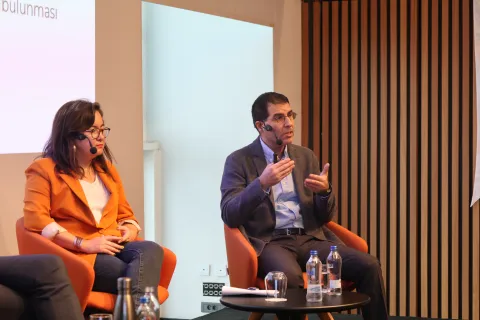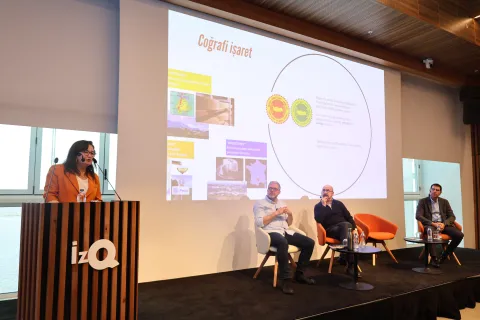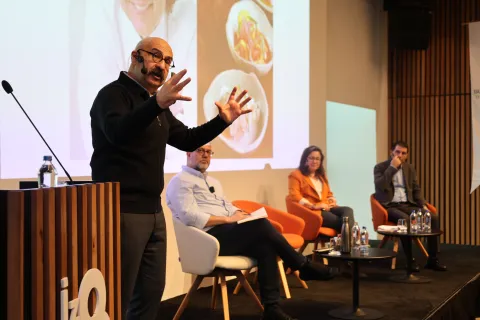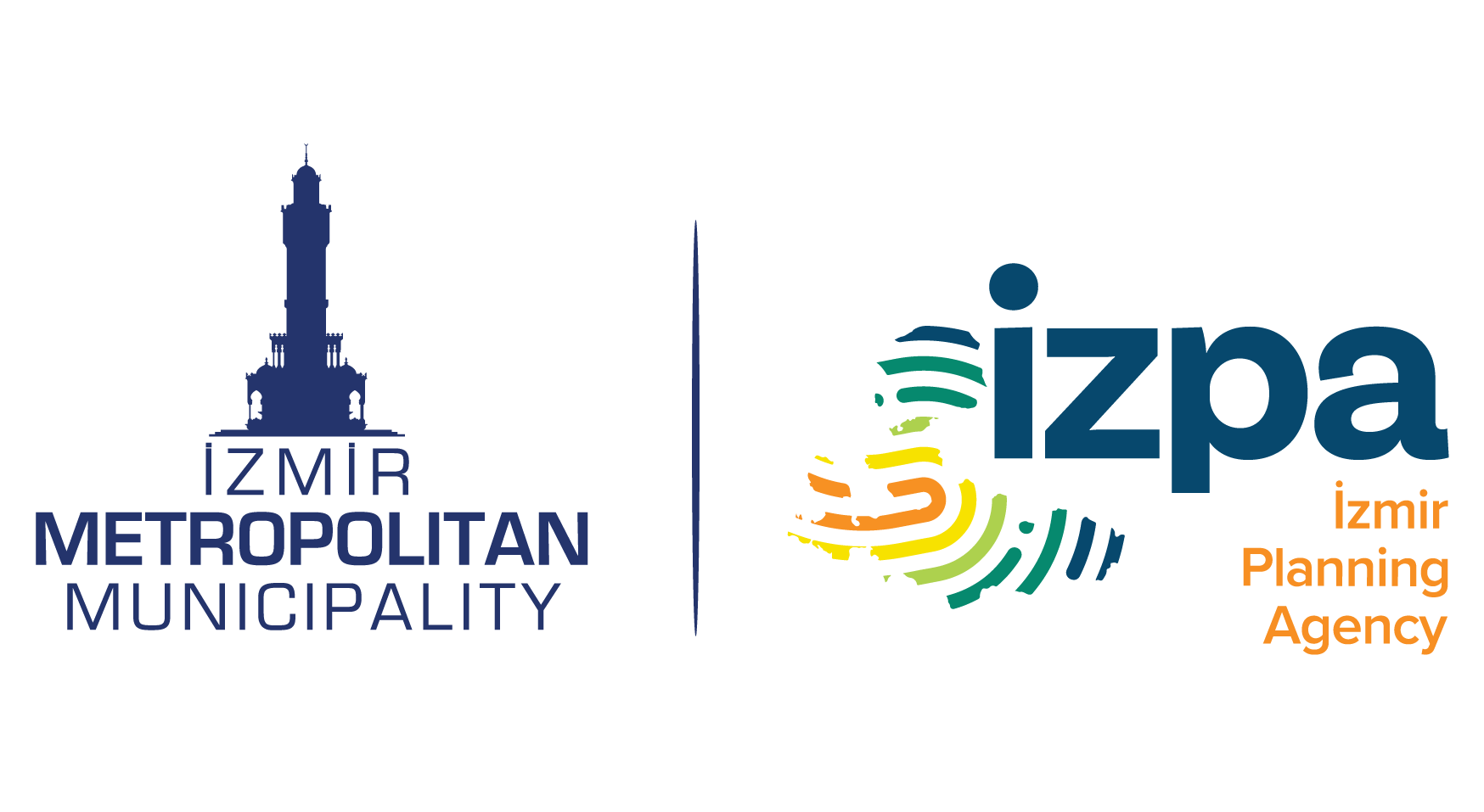"What Kind of Izmir" series continued with Food and Agriculture panel
- Image
The second panel of the ‘What Kind of Izmir’ series, consisting of eight panels and eight workshops in total was held at the IzQ Innovation Centre. Moderated by Assoc. Prof. Dr. Murad Tiryakioğlu, the event was attended by representatives from municipalities, professional chambers, universities, and many engaged citizens.
Prof. Özertan provided an in-depth analysis of the current state and future prospects of the food and agriculture sectors in Turkey. Highlighting the critical importance of economic conditions for the sustainability of production in these sectors, he stated:
There is a complex structure with many actors, making it difficult to manage. Production faces numerous challenges across social, environmental, and economic dimensions. One major shortcoming in agriculture is our inability to transfer knowledge on how to improve production to our producers."
Prof. Özertan also addressed the pressing global issues of healthy nutrition and food safety, emphasizing the significant impacts of climate change:

"Climate change will affect us more than we realize. Animals and plants are under stress due to climate change, which is a result of our economic activities over the past 200 years. In Turkey, we focus on short-term thinking and planning, addressing symptoms rather than underlying causes. As a result, we are still dealing with the same issues we faced in the 1960s, even in 2024. To move forward, we must shift from short-term to medium-term goals."
He pointed out the challenges facing agricultural producers, including aging demographics, low levels of education, financial and technological illiteracy, and insufficient investments in improving production practices. Stressing the importance of integrating economic, social, and ecological considerations, he remarked:
"While the economic and political dimensions are vital, no matter how you envision 2074, the social and ecological dimensions are equally critical. The key is to be able to craft policies locally and to localize solutions."
"The important thing is to be able to make politics locally, to localise"
Following Prof. Dr. Gökhan Özertan’s presentation, Assoc. Prof. Dr. Derya Nizam, a faculty member at Izmir University of Economics, addressed key topics such as geographical indications in agriculture and food, localisation, and cooperatives in Izmir. Dr. Nizam highlighted that most geographical indications currently serve only as certificates and lack meaningful social impact, stating:
"Geographical indications can only produce meaningful social outcomes when they are supported by an organisational framework and a protection model. This is not merely a branding issue; it is about safeguarding local resources."

Nizam also commented on the broader implications of agricultural industrialisation, explaining:
"Industrialisation in agriculture has led to significant social, economic, and ecological challenges. Regions that industrialised later are often better able to preserve their local resources. In the post-industrial era, localisation is gaining popularity, with regions aiming to leverage their local products in the rent economy. However, in Turkey, this is complicated by a food system that exacerbates regional inequalities. Some regions have industrialised, while others lag behind, resulting in disparities in local values and products. Effective localisation requires local policies, cooperation, collective consciousness, and action. Agriculture is too important to be left solely to the private sector, but for this shift to occur, the sector must remain economically viable."
There is hidden hunger in Turkey
The panel’s final speaker, Prof. Dr. Zafer Yenal from Sabancı University, explored the relationship between agricultural production and gastronomy. He underscored the growing importance of food security and sovereignty, while recognising Izmir’s unique contributions to agriculture:
"Izmir is deeply invested in agriculture, with long-term and organised efforts in this area. Initiatives such as seed swap festivals and the preservation of Karakılçık wheat illustrate this commitment. Izmir’s agricultural story has been shaped by institutionalisation, which gives it certain advantages. However, this foundation is fragile."
Prof. Yenal also warned of impending challenges due to global warming:
"In 15-20 years, precipitation in Izmir will decrease by half. This raises critical questions: What methods will we use to produce food? How will we collect rainwater? Long-term planning is essential. According to the World Health Organisation, health issues related to nutrition are at intermediate levels in Turkey. Our carbohydrate-heavy diet, coupled with nutrient deficiencies in wheat, has led to hidden hunger. We must find solutions to such fundamental problems."
The panel concluded with a question-and-answer session, providing further insights into these critical topics.

